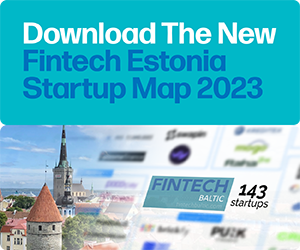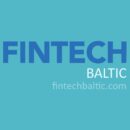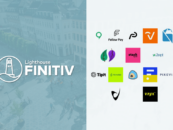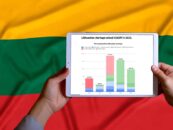Over the past years, Lithuania has emerged as a significant player in the European fintech sector, an industry that has grown on the back of a burgeoning startup ecosystem, a favorable regulatory environment and robust infrastructure.
As of the end of 2022, the Baltic country was home to more than 260 fintech companies, up from just a mere 55 in 2014, data from Invest Lithuania, the country’s agency for foreign direct investment and business development, show. The industry employed 7,000 people, representing a 18.6% year-on-year (YoY) in 2022.
The growth of fintech in Lithuania is also visible through the increased activity domestic fintech companies are experiencing. In H1 2022, the revenue generated by licensed electronic money and payment institutions reached a new record of EUR 375 million, up 80% YoY. Compared with H1 2018, the sum represents a 26-fold increase.
The fintech momentum is projected to carry on in Lithuania this year onwards as the new 2023-2028 fintech strategy, released in October 2023, gives further impetus to fintech adoption.
As fintech continues to grow and evolve in Lithuania, we look today at six fast-growing private fintech companies headquartered in the Baltic country, delving into what they have in store for 2024. These up-and-coming fintech startups have all witnessed traction over the past year, securing capital from notable investors, launching new services and experiencing a surge in demand, and are poised to record continued momentum this year onward.
HeavyFinance

Founded in 2020, HeavyFinance provides financing and loan schemes to companies in the sustainable agriculture sphere, with the goal of removing 1 gigaton of CO2 emissions by 2050. By unlocking private capital for climate solutions, the company aims to play a key role in driving the green transition and promoting sustainable development.
HeavyFinance facilitates investments in debt capital for small and medium-sized agricultural enterprises to switch and expand regenerative agriculture practices such as no-till farming, mixed crop rotation, cover cropping, and the application of compost and manure.
The company’s platform connects investors with sustainable and environmentally-focused projects, helping investors secure financial returns. It relies on an in-house underlying infrastructure that scores the borrowing capabilities of farmers and agricultural operators, facilitating transactions and administering loans more effectively.
HeavyFinance claims it has so far facilitated financing to more than 1,000 agricultural ventures in Bulgaria, Latvia, Lithuania, Poland, and Portugal. The startup secured EUR 3 million in March 2023 during its seed funding round which it said it would use to continue its European expansion, accelerate the switch from conventional farming to regenerative practices, enroll 200,000 hectares of regenerative farmland as part of a carbon farming initiative, and create direct access for businesses looking to offset their carbon footprint.
Amlyze

Founded in 2019, Amlyze is a software-as-a-service (SaaS) provider offering a suite of anti-financial crime solutions. These solutions include real-time and retrospective transaction monitoring, customer risk assessment, anti-money laundering/counter financing of terrorism (AML/CFT) investigations, as well as screening for sanctions, politically exposed persons (PEPs) and adverse media.
Amlyze’s solutions are designed to streamline and enhance AML/CFT and compliance processes, making them more efficient and effective in preventing financial crimes such as money laundering and terrorist financing.
Amlyze is lead by a team of experts boasting extensive experience in anti-money laundering, financial fraud prevention, and financial market supervision. Notable figures include Jekaterina Govina, former head of the Financial Market Supervision Service at the Bank of Lithuania; Mindaugas Petrauskas, former supervisor of the Financial Intelligence Unit (FIU) of Lithuania; and Eglė Kontautaitė, former head of the Money Laundering Prevention Division at the Bank of Lithuania.
Last year, Amlyze won the Enabler of the Year award at the Lithuanian Fintech Market Awards, and in March 2023, Mastercard selected Amlyze as the only representative of the Lithuanian startup ecosystem to participate in its fintech Finitiv program alongside 15 other fintech startups from Norway, Denmark and Estonia.
Amlyze raised EUR 1 million in a pre-Seed funding round in May 2023 to scale its SaaS business, facilitate international expansion, and introduce advanced functionalities to their core product offerings. The company said at the time that it had experienced a surge in demand for its transaction monitoring, risk assessment, and case investigation solutions.
Micapass

Founded in 2023, Micapass provides an advanced on-chain AML compliance solution specifically designed for decentralized finance (DeFi) protocols and aimed at addressing the changing regulatory landscape in the crypto market. The solution enables seamless scanning and identification of bad actors, helping to prevent potential sanctions and ensure regulatory compliance.
Users undergo a know-your-customer (KYC) process once and then receive a smart contract-based digital identity that showcases their legitimacy. This digital identity grants them access to DeFi protocols, and it’s regularly monitored to ensure continued user compliance with current AML regulations.
Micapass claims more than 12 000+ users with verified wallets and 3 200+ users with KYC. It says its primary business-to-business (B2B) clients include DeFi protocols such as decentralized exchanges, staking, lending and borrowing platforms, decentralized autonomous organizations (DAOs), launchpads and others. Additionally, Micapass serves KYC/AML providers and crypto AML companies, assisting with their expansion to the Web 3.0 space by offering on-chain credentials and enabling them to be compliant with the upcoming European regulation on Markets in Crypto-Assets (MiCA) travel rules and other regulatory requirements.
In October 2023, Micapass raised EUR 240,000 from SUPER HOW? and Baltic startup accelerator Firstpick to continue developing its solution. Aside from securing funding, Micapass’ other recent milestones include achieving a top 10 ranking among 500 pitches at the European Blockchain Convention in Barcelona and clinching victories at the Startup Fair and Tech Hub events in the Baltics.
Gintare Kosubiene, co-founder and CEO of Micapass, told ITKeyMedia in November 2023 that the startup is now preparing for a pre-Seed round of EUR 1.2 million.
Okredo

Founded in 2015, Okredo is an open data platform providing credit scores, financial ratios, and insights in both freemium and premium accounts. The company’s SaaS platform merges open data, open banking, and credit bureau functionalities to help small and medium-sized enterprises (SMEs) assess the credibility, financial strength and sales potential of new and existing business partners and customers.
Okredo uses artificial intelligence (AI)-driven analysis to enhance raw data and presents this data as modules and reports via a user-friendly and customizable web GUI. These reports and modules provide credit scores and insights that are updated dynamically to give alerts.
Okredo launched across the broader Baltic region in 2021 and expanded to the UK in 2023. The startup is now reportedly developing revenue share-based partnerships with customer relationship management (CRM), enterprise resource planning (ERP) and accounting service providers by enriching their systems and products with the newest data, insights and data-driven decisions. It also plans to introduce new services like credit limit and credit scoring, to help platform users to better understand the credibility of their partners.
Okredo has raised more than EUR 1 million in funding.
Kevin.

Founded in 2018, Kevin. offers innovative and convenient payment solutions that remove unnecessary intermediaries in the payment process. The company leverages open banking to deliver web and in-app account-to-account (A2A) payments in the European Economic Area, where it now claims to have the broadest PSD2 bank API coverage on the market.
By bypassing card networks, Kevin. allows businesses to process payments directly from customers’ bank accounts, reducing transaction fees and enhancing payment processing efficiency. The uniqueness of its A2A in-store payments offering lies in the fact that it does not require any changes on the merchant’s technical side, using instead existing point-of-sale (POS) terminal infrastructure and the widely used NFC payment technology.
In August 2023, Kevin. was named one of the top 10 fastest-growing fintech companies in Europe by European tech media site Sifted. The startup secured its last round of funding in May 2022, raising US$65 million Series A to boost its growth. The round brought its total funding to US$77 million.
smeGO

Founded in 2016, smeGO, formerly known as SME Finance, offers data-driven financial services for SMEs in the Baltics and the larger European Union (EU), including business loans and credit lines, invoice finance, factoring, leasing, revenue-based financing, and embedded finance solutions for non-financial businesses or integrations for marketplaces.
smeGO aims to revolutionize the way SMEs, digital businesses, and freelancers in Europe access working capital, delivering an AI-driven fintech platform that ensures rapid and unbiased lending decisions within just one hour.
smeGO’s success is underpinned by robust risk management, maintaining a low non-performing loan (NPL) ratio of just 1%. The company claims it has achieved profitability since inception, generating EUR 14 million in revenue in 2022, with a projected revenue of EUR 40 million for the upcoming year.
smeGO says it has already provided more than EUR 1.3 billion in working capital to over 2,600 growing businesses across Europe, and claims it is a market leader in B2B financing in the Baltics, with more than 50% of the market in Lithuania, and rapidly increasing market share in Latvia, Estonia, and Finland.
Looking ahead, smeGO aims to further expand its revenue streams by scaling-up daily financing services and offering more services via partners.








No Comments so far
Jump into a conversationNo Comments Yet!
You can be the one to start a conversation.